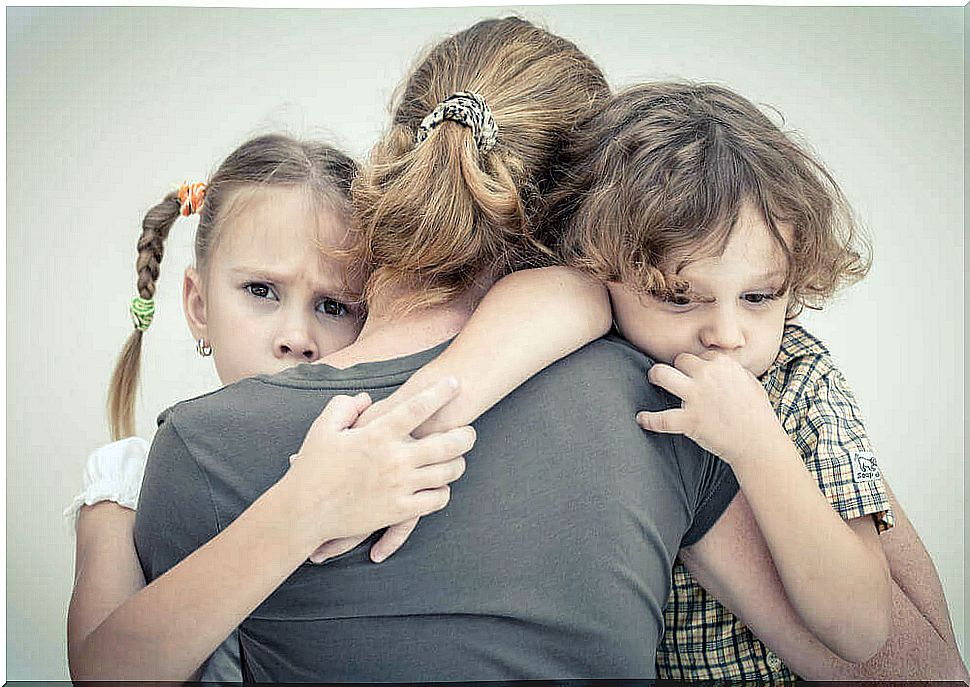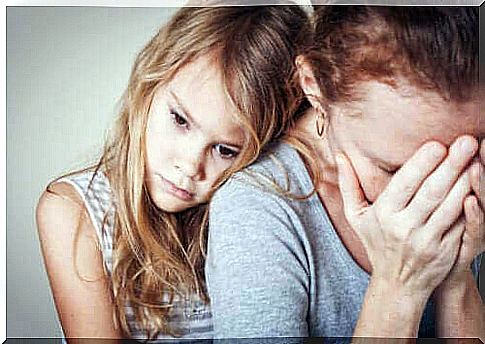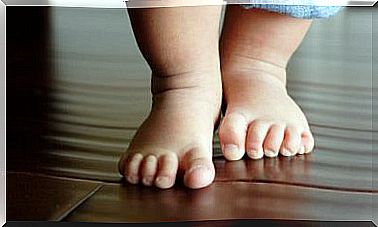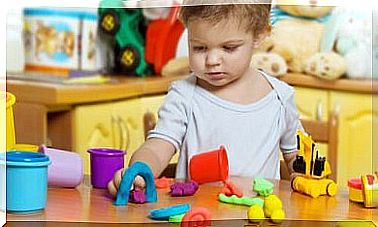Don’t Let Your Anxiety Affect Your Children

Children imitate their parents in everything – both their words and gestures and the things they do. If the mother or father raises his voice, the child also begins to shout. If a parent reads a book, even the child gets excited to browse their own book. If a parent is anxious, the child will feel that same anxiety and act on those feelings. This is true even though the child does not properly understand the feeling of anxiety or why the parent feels such feelings.
The child knows when his or her parents are anxious
It is only natural for a child to notice and even imitate the anxiety experienced by their parents. Children are very sensitive to sensing elevated stress levels in their parents and are surprisingly prone to suffer from passive stress. The child’s brain is still evolving, and the child is very sensitive to absorbing environmental influences and also stressors.
Several studies have shown that even if a child is not present in a stressful situation themselves or does not experience a particular situation as stressful, he or she absorbs the energy of stressed parents. The more anxious the parent, the greater the stress and anxiety the child will experience. In other words, it is very easy to pass on your own anxiety to a child without even noticing that you are doing so. The child admires their parents, takes a model of their behavior and feels safe according to how the parents behave and talk to him.
When a child senses that a parent is worried or anxious, he or she becomes insecure and his or her feelings of insecurity increase. The same is true the other way around; if parents know how to act as a positive model in dealing with strong emotions, they can teach the child that he or she does not have to be afraid or anxious. Instead, the child learns to face difficult situations and resolve them in a constructive way.

Learn to face your fears
So what should you do next time you feel anxious? First, identify and accept your own feelings of anxiety. Don’t try to fight them or ignore them. If you do this, you may only exacerbate your symptoms and make your anxiety worse. Keep in mind that a feeling of anxiety is just one feeling among others.
Instead of trying to escape your own feelings of anxiety, Learn to face and overcome your fears. The best way to deal with anxiety is to face it directly. Anxiety is a learned pattern of behavior from which it is possible to learn as well. You just have to persevere to practice recognizing your fear and dealing with it in a way that it will eventually disappear.
Question your own feelings of anxiety
Be realistic about your feelings of anxiety. Ask yourself what is the worst thing that could happen and how likely it is that this will happen. These questions will help you challenge your own established mindsets and understand how unrealistic and unlikely your fears and worries really are. At the same time, it’s also important to find the right technology to help you deal with your own current feelings. These include:
- Breathing. Various deep breathing techniques are an excellent way to control feelings of anxiety both in advance and in an acute situation. Through breathing, you activate your body’s relaxation mechanisms. For example, try inhaling slowly while counting to four in your mind and exhaling while counting to four again. Repeat this several times.
- Finding a safe place for yourself. Many people find it helpful to stop what they are doing at the moment and go to a quiet state instead. Calming down for a few minutes with your own thoughts will help you as if you are restarting yourself.
- Finding a suitable distraction. When you feel anxious, your brain starts to go round and your thoughts revolve around the same thing. It is important to break this cycle and make your thoughts stop. You can do this by shifting your attention to activities that take your thoughts elsewhere and activate the particular logical side of your brain. Such activities can be, for example, listening to a podcast, counting numbers, or even telling a story.

- Finding activities that are goal-oriented. If you have enough time, focus your attention on one of the activities that is relevant and goal-oriented for you. This can be as simple as washing clothes, going out for a walk, or having a coffee.
Talk to your child about what’s going on and how you feel
If you lose control and feel stressed in front of your child, talk to him or her about your own feelings. Show him that feeling anxiety is normal and, most importantly, the kind of thing you can handle.
You can let your child see when you experience feelings of anxiety and use different methods to deal with those feelings. This way, your child will also be more likely to emulate the same positive behaviors.
This will teach your child that it is perfectly normal to feel anxious at times and that he or she will be able to control the situation. When your child understands this, he or she will also feel more relaxed and safe and dare to explore and play boldly in the world around him or her.
Raising a child also involves a lot of teaching how a child can deal with things he or she may not see. Show your child that facing irrational fears and overcoming them is a much more effective way than escaping or living in constant fear .









